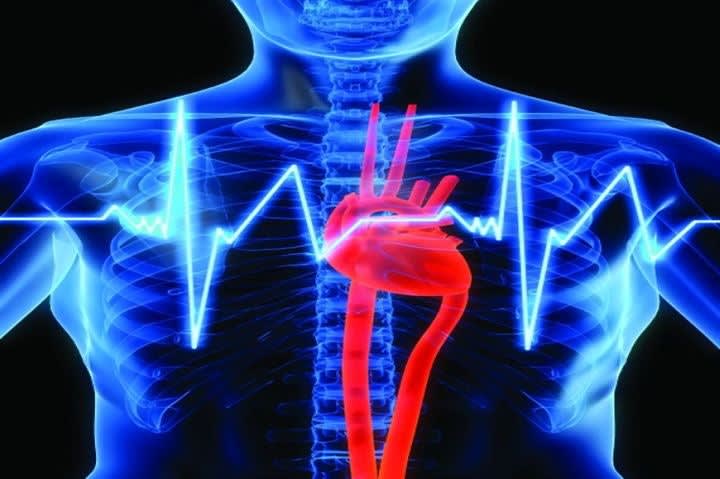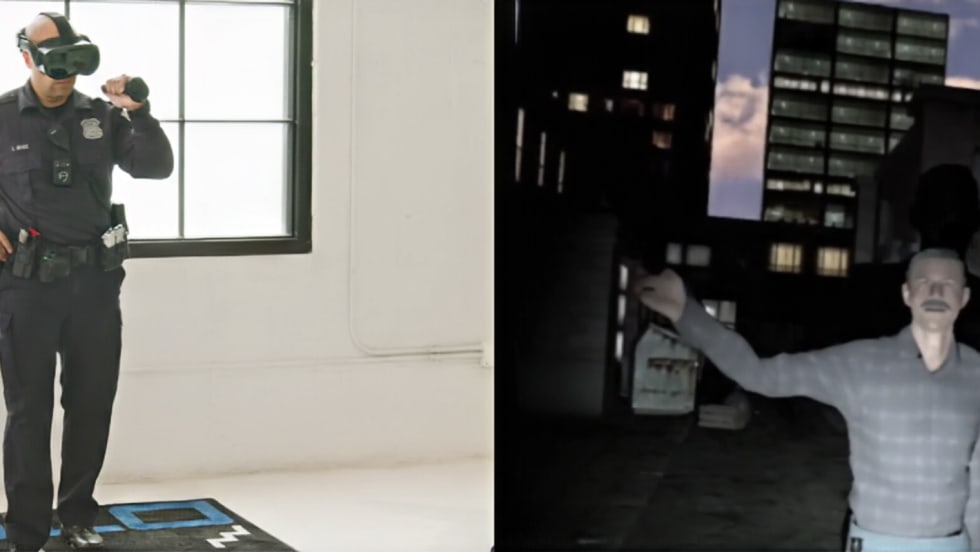You know how to respond to a deadly human threat, but you're much more likely to get sick on the job than you are to be shot. Many officers are unaware of these risks. Awareness is the key to prevention. When you know the danger, you can take precautions.
You know how to respond to a deadly human threat, but you're much more likely to get sick on the job than you are to be shot.
Gunshot wounds, stabbing injuries, broken limbs, and sprained muscles. All new police (and even seasoned vets) know that these injuries are part of the job.
But there are other, less well-known hazards of police work; conditions that run the gamut from rare to extremely common. And many officers are unaware of these risks.
Awareness is the key to prevention. When you know the danger, you can take precautions.
The following is a quick look at some common and uncommon conditions that can rob a law enforcement officer of a healthy and happy life.
MRSA
Staphylococcus aureus (commonly referred to as staph) is present in 25 to 30 percent of the population and, for most people, it causes no problems. MRSA, however, is the exception to the rule.
MRSA (Methicillin-resistant Staphylococcus aureus) is usually spread via skin-to-skin contact (especially when cuts or abrasions are present), but you can also be infected by simply handling contaminated items.
MRSA is more common in certain populations, for example, those who've been hospitalized, those with compromised immune systems, prison inmates, and the inhabitants of high-density homeless encampments.
Since officers routinely come into contact with people who are at risk for MRSA Staph, you need to take special precautions if there is any sign of infection. The first line of defense (which should be carried out before a shift even begins) is to cover any open wounds with bandages that won't come loose during a struggle.
Gloving up is the next precaution to take. If the situation is fast moving and you don't have time to glove up, try to avoid skin-to-skin contact with suspects. And wash your hands thoroughly as soon as possible after physical contact with a suspect. Many officers also use disinfectant wipes on their hands, the steering wheels of their patrol cars, and any equipment that they handle.
Obesity
According to the Centers for Disease Control and Prevention, some 30 percent of Americans are overweight, and officers are no exception. Contemporary police work is, for the most part, a sedentary occupation and, while there are no statistics as to the prevalence of obesity in the ranks, there's no doubt that it's a problem.
Fortunately, there are solutions to this problem, but keeping officers in shape usually requires help from administrators. For example, some departments have constructed gyms that are easily accessible to police officers. Others provide discount rates for officers at local health clubs. Some administrators even reward officers who stay in shape. And others reprimand officers who don't work out.
You may be young and fit today. Just make sure that 10 years from now you aren't a "fat cop."
Diabetes
There are two forms of Diabetes: Type 1, which is usually diagnosed in childhood, and Type 2, which is much more prevalent, especially among adults. In the latter type, the body makes insulin but cannot use it properly, leading to an under production of insulin and an inability to keep blood-sugar levels normal.
Type 2 diabetes is directly linked to inactivity and obesity; those who are overweight and sedentary have a much greater chance of contracting the disease. So, since there are ways to prevent diabetes, the best offense is a good defense. The first thing is to keep the weight off. You are coming out or in the academy, so this shouldn't be a problem for you now. What you have to worry about is weight gain over the course of your career.
The best way to fight diabetes is to stay active. And even a little activity can go a long way. Park a little farther away from the store or the office, spend some more time playing ball with the kids, etc. Whether it's small activities or bigger commitments, like joining a gym, it's important to stay active and maintain a healthy weight.
Even though there are treatments for Type 2 diabetes, including meal planning, medication, and insulin shots, they, along with the disease, can compromise your ability to do your job.
Hep B/HepC/HIV
Hepatitis B, Hepatitis C, and HIV are all transmitted, to varying degrees, by blood and/or bodily fluids. The most common exposure for officers is a needle stick from some junkie's rig.
The first layer of precaution is to ask about needles before you pat someone down. The second is to wear needle-resistant gloves when possible. If you do get stuck, notify your supervisor immediately and seek medical attention. There are drugs that can lessen your chance of infections.
Less common is blood-to-blood exposure, but it can happen, especially if you go hands-on with a suspect. Any open wounds, even scratches or small wounds, should be covered when you are on the job. Extra precautions must also be taken when blood or bodily fluids are present on a suspect or at a crime scene (even days after the original crime.)[PAGEBREAK]
Heart Attack/Stroke
Cardiovascular disease is the leading cause of death in adults as well as the leading cause of death among diabetics. Obesity and inactivity raise the risk of heart disease because overweight people tend to have high blood cholesterol levels and high blood pressure.
But just because you're fit doesn't mean that you are safe. Stress is another big culprit. And police work is obviously stressful.
It's important to reduce the risk factors for heart disease before there is a problem, since those who've had one heart attack are much more likely to have another. The first stop is the doctor. A full physical should be performed every year, and that should include tests to gauge the risk of heart disease.
Perhaps the hardest risk factor to "fix," however, is stress. Cops are tough and, in general, they tend to keep their feelings close to the vest. But one of the best stress relievers is to talk to others: spouses, friends, peers who understand the strain of the job.
In addition, you need to find your own stress relievers. A hobby, spiritual endeavors, outings with the family, a night out with the guys; whatever helps relieve the pressure.
PTSD
Post Traumatic Stress Disorder is probably one of the most common and yet least understood health hazards faced by police officers. It's well known that soldiers coming back from battle are prime candidates for PTSD, but most cops don't realize that PTSD can happen to anyone who has experienced a traumatic event.
Even though officers try to stay psychologically prepared to deal with troubling incidents, it's not always possible. Especially when the incident is life threatening or particularly emotional such as the death of a child or partner.
PTSD symptoms can take many forms, including nightmares, withdrawal from friends and family, a constant reliving of the trauma, difficulty sleeping, etc. But the most important thing to know about PTSD is that it's treatable.
In order to get past it, however, an officer needs to work it out with a trained professional, such as a social worker, psychologist or psychiatrist. With treatment, PTSD can resolve in as little as a couple of months, although, for particularly difficult cases, it may take longer. If left untreated, however, PTSD will almost certainly affect an officer's entire life, both at home and on the job.
Alcohol Abuse
The misuse of alcohol is the worst-kept secret in law enforcement. A lot of cops turn to the bottle to relieve stress. But using alcohol as a stress reliever almost always backfires. Alcohol is a depressant, and heavy drinkers often become more angry, depressed, and stressed out than before.
Alcohol abuse is a tough nut to crack. It's very difficult for those who misuse alcohol to admit it, let alone do something about it. And that's especially true when it comes to those in police work, where stoicism is a way of life. But it's important that you don't drown your troubles in drink.
Depression
Although depression comes in many forms, there are basically two types: clinical and situational. Those with clinical depression (a.k.a. Major Depressive Disorder) are down for long periods of time (two weeks or more) and are sad for no particular reason.
Situational depression, however, is due to a particular circumstance; for example, the loss of a loved one or an emotional event that causes sad feelings. Cops are prone to situational depression, but you also need to watch for signs of clinical depression, as well.
Loss of pleasure in everyday activities is a common symptom, as is an overwhelming feeling of sadness or even grief. Other symptoms include apathy, loss of appetite, sexual dysfunction, and sleep disturbances.
If these symptoms are due to a particular event and go away on their own, no treatment is necessary. If, however, the symptoms continue for more than several weeks and/or increase in severity, then it's time to seek medical attention. Medication is often prescribed and relief can be felt in as little as 24 to 48 hours.











